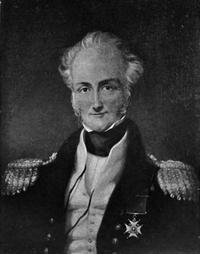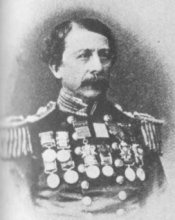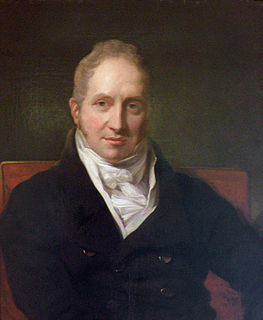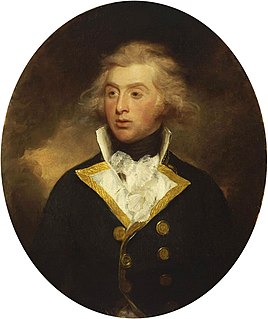 W
WRear Admiral Charles John Austen CB was an officer in the Royal Navy and the youngest brother of novelist Jane Austen. He served during the French Revolutionary and Napoleonic Wars, and beyond, eventually rising to the rank of rear-admiral.
 W
WAdmiral Sir Arthur Cumming was an officer of the Royal Navy.
 W
WAdmiral Sir John Charles Dalrymple-Hay, 3rd Baronet, was a Royal Navy officer and politician.
 W
WCaptain George Fiott Day, was a Royal Navy officer and one of the earliest recipients of the Victoria Cross, the highest award for gallantry in the face of the enemy that can be awarded to British and Commonwealth forces. He was also a Knight of the Legion of Honour.
 W
WSir David Deas was a Scottish medical officer in the Royal Navy.
 W
WJames Walter Fairholme was a British Royal Navy officer and polar explorer who in 1845 served under Sir John Franklin on the Erebus during the Franklin expedition to discover the Northwest Passage, which ended with the loss of all 129 crewmen in mysterious circumstances.
 W
WJames Fitzjames was a British Royal Navy officer who participated in two major exploratory expeditions, the Euphrates Expedition and the Franklin Expedition.
 W
WAdmiral of the Fleet Sir Geoffrey Thomas Phipps Hornby GCB was a Royal Navy officer. As a junior officer, he saw action at the capture of Acre in November 1840 during the Egyptian–Ottoman War. As a captain he arrived at Vancouver Island with a naval brigade and found that a unit of American troops was about to take over the San Juan Islands in a dispute known as the Pig War: he used his powers of diplomacy to facilitate a peaceful handover of the islands to the United States.
 W
WAdmiral Sir Charles John Napier KCB GOTE RN was a British naval officer whose sixty years in the Royal Navy included service in the War of 1812, the Napoleonic Wars, Syrian War and the Crimean War, and a period commanding the Portuguese navy in the Liberal Wars. An innovator concerned with the development of iron ships, and an advocate of humane reform in the Royal Navy, he was also active in politics as a Liberal Member of Parliament and was probably the naval officer most widely known to the public in the early Victorian Era.
 W
WCaptain Sir William Peel VC KCB was a British naval officer and recipient of the Victoria Cross, the highest and most prestigious award for gallantry in the face of the enemy that can be awarded to British and Commonwealth forces. He was the third son of the Prime Minister Sir Robert Peel. Like his father, he was educated at Harrow School.
 W
WAdmiral of the Fleet Sir Houston Stewart, was a Royal Navy officer and briefly a Liberal Party Member of Parliament. After serving as a junior officer in the Napoleonic Wars, Stewart became commanding officer of the third-rate HMS Benbow in the Mediterranean Fleet and took part in the bombardment of Acre during the Egyptian–Ottoman War. He went on to be Captain-Superintendent of Woolwich Dockyard and then Controller-General of the Coastguard.
 W
WAdmiral Sir Robert Stopford, was a distinguished officer in the Royal Navy whose career spanned over 60 years, from the French Revolutionary Wars to the Syrian War.